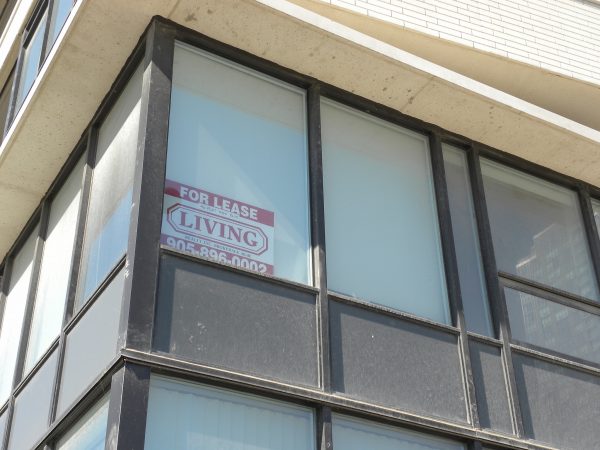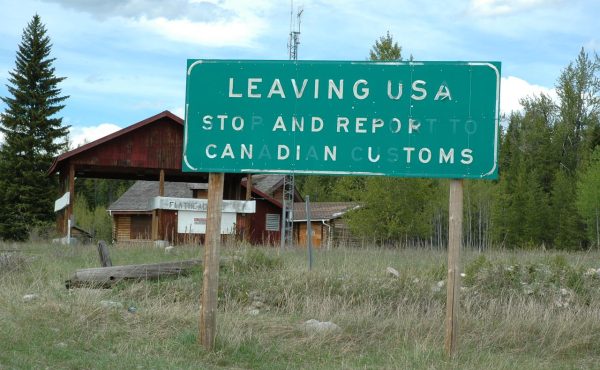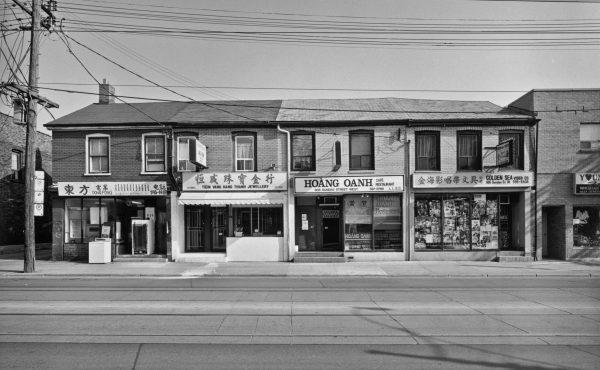
The housing file, as everyone knows, is burning hotter than the forests in western Canada, but might this issue be having a moment?
I’m struck by a weird and somewhat unexpected alignment. Justin Trudeau’s Liberals are being lashed, vigorously, about failing to grasp the federal government’s role in housing. Doug Ford’s Tories are obviously petrified about the ticking time-bomb that is the Greenbelt swamp, a scandal that has put the lie to all their populist blather about building homes.
Then, on the sunny side of the political ledger, Mayor Olivia Chow last week set in motion her ambitious campaign promise to build 25,000 new “rent controlled” homes, either on city-owned sites or properties that can be immediately pressed into services and are owned by other public agencies, co-ops, and non-profits.
To my eye, this moment, perhaps more than any other I’ve seen lately, seems to be bursting with political possibility, driven as it is by a potent cocktail of activism, shame and desperation.
Start with Ottawa: for reasons that barely need parsing, everyone’s conveniently forgotten that the Liberals shovelled $80 billion — not chump change — into housing, to be dispensed over a decade by Canada Mortgage and Housing Corp.
Pierre Poilievre and his merry band of social media warriors have flogged the government for a whole lot of sins that are, if we agree to speak truthfully, beyond their control, either from above (inflation, supply chain chaos) or below (municipalities that have failed to intensify over decades). Still, Ottawa’s run up the immigration numbers and yet has seemed content to allow the mandarins at CMHC plod their way through all that cash instead of trying to get it out the door as quickly as possible, and do so in the most high-impact way.
Ford, of course, is nervously waiting for a call from the Mounties, and his housing minister’s ex-chief of staff has already lawyered up. I can actually imagine Queen’s Park putting those pungent land deals on ice and then doubling down on the transit-oriented intensification parts of their agenda (i.e., the Major Transit Station Area policy), which is disruptive but not wrong-headed. After all, why spearfish a term-two majority for a handful of luxury home builders?
Because she’s only been on the job for ten minutes, Chow, deserevedly basking in the post-John Tory honeymoon, has a pristine opportunity to offer up solutions (or outs) to both Trudeau and Ford — a housing program that delivers what every expert this side of Neptune agrees is the most needed commodity: purpose-built rental apartments, and lots of them.
One of the learnings about why the feds’ National Housing Strategy failed to deliver the goods is that the funding is both insufficient and throttled. Better to prime the pump with fiscal measures such as eliminating the HST on construction materials, providing tax credits to apartment developers and finding ways to back-stop mortgages taken out by non-profit housing organizations.
As for Ford, besides the obvious take-away, his government could effortlessly tell the public that it will make good by implementing ALL the recommendations of its very own Ontario Housing Affordability Taskforce. The OHAT had a lot to say about rental housing (e.g., harmonizing HST rebates with those of the feds), as well as this chestnut about the greenbelt: “Most of the solution must come from densification,” the taskforce’s obviously development-friendly members noted. “Greenbelts and other environmentally sensitive areas must be protected, and farms provide food and food security.”
There are ways for Chow to light a fire under her erstwhile dance partners. For instance, the OHAT report called on the province to equalize property tax rates between rentals, houses and condos. Toronto council has in fact done that for new apartment buildings, but the city could also find a way to push the recommendation further by negotiating a deal with Queen’s Park and the apartment building industry to allow all multi-unit rental buildings to be taxed at the equalized rate, with a legally enforceable proviso that the landlords don’t pocket the benefit but instead use it to invest in new long-term rentals. (Toronto’s 2023 tax rate for existing multi-unit residential — home to almost half the city’s residents — is still twice as high as it is for condos or houses.)
Yet for Chow to truly take advantage of this interesting moment, she and her staff have to figure out how to rapidly diagnose what went wrong with Tory’s Housing Now program, and then make sure the new plan, which will be presented by staff later in the fall, doesn’t fall victim to the same kinds of bottlenecks.
The marching orders Chow’s executive committee sent off to city officials called on them to figure out “an effective alignment of resources, mandates, structure, and personnel of all City of Toronto agencies, boards, commissions, corporations and divisions, in particular Toronto Community Housing and CreateTO, that would enable the City of Toronto to build new public and community housing in collaboration with co-ops, non-profit housing providers, governmental organizations and other partners.”
All good, but there’s been no disinterested public evaluation about why a housing program promised by the mayor and broadly approved by council got so desperately lost in the weeds (the first ground breaking happened earlier in the summer, well over four years in).
I’ve heard a bunch of theories, some of which involve X-factors like the pandemic and soaring interest rates. But the fact is that many of the initially proposed Housing Now sites — for all their locational viability and the seeming miracle of free land — got hopelessly tangled up in local agendas and departmental in-fighting.
I don’t believe city officials have sufficient distance to both figure out what went wrong and then publicly propose solutions designed to avoid repeating those same mistakes. An interim report card on Housing Now ought be done in conjunction with Chow’s ambitious housing plan, and it should be carried out as quickly as humanly possible. But that job must go either to the city’s auditor-general or some other neutral third-party who can speak truth to power.
Also, this business of finding an “alignment of resources” has to get at the issue of pace. I’m not going to argue that we need to drive a housing agenda by torching all the detailed work that goes in to building large structures where people live, raise kids, rest, etc. Yet Chow and the city’s top officials absolutely have to find a way to stoke the process; merely making sure that all the various bureaucratic stakeholders are singing from the same hymn-book isn’t sufficient.
Stepping on the gas may well mean bringing in more bodies to do the necessary work, and I would hope Chow and budget chief Shelley Carroll understand that over-stretched bureaucrats who are forever working off the sides of their desks do not a speedy solution make.
For all the caveats, however, Chow can and should be looking for a win amidst this inter-governmental chaos. As the old adage has it, never waste a crisis — especially when it’s happening to your counterparties.




